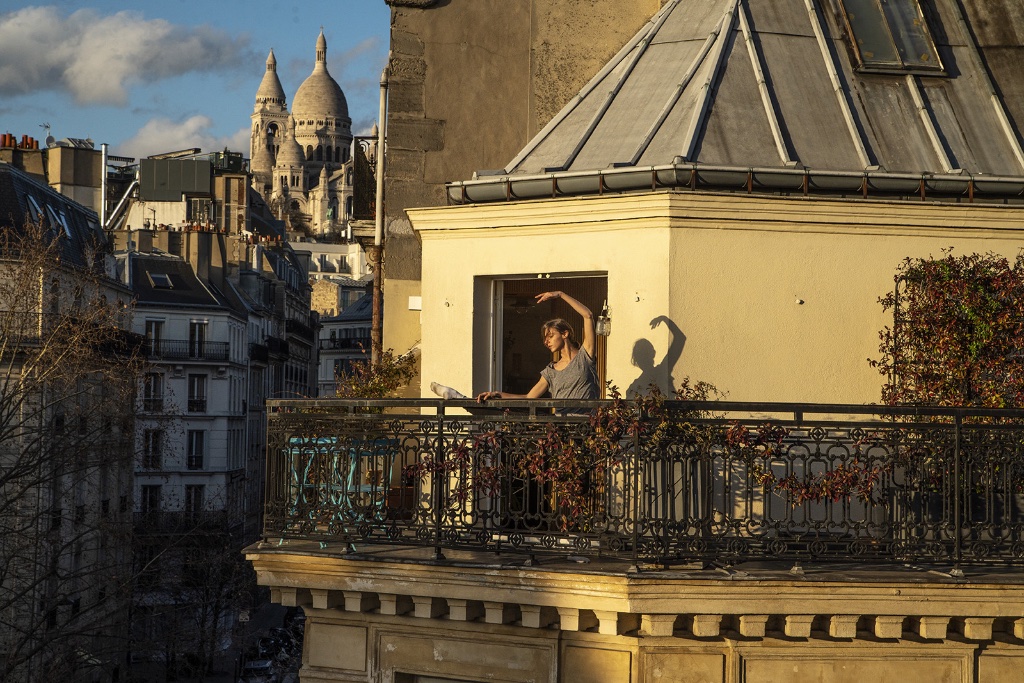In spite of enthusiastic recommendations from friends and good reviews in the press, I was hesitant to see Cédric Klapisch’s new film, En Corps (Rise). I had loved his early film Chacun Cherche Son Chat (When the Cat’s Away) but had been put off by the cliché-ridden L’Auberge Espagnole and its sequel Les Poupées Russes (Russian Dolls) and had stopped following him.
I finally gave in and went to see the new film, however, and I’m glad that I did.
En Corps begins with a beautifully shot sequence that takes place backstage and onstage during a performance of the ballet La Bayadère. With no need for dialogue, the stage is immediately set for the movie’s plot. The prima ballerina, Élise (brilliantly played by the charming Marion Barbeau, a real ballerina from the Paris Opera Ballet in her first film role), troubled by an incident she witnessed backstage just before going on, takes a bad fall and breaks her ankle.
Naturally, this is a huge tragedy for someone whose life is totally focused on dance. The 26-year-old Élise, told by a doctor that she will probably have to take two years off during her prime dancing years, is understandably depressed by the prospect and by the recent loss of a cheating boyfriend. The rest of the film follows her through her attempts to recover and find a new path in life.
Élise takes on a menial job in Brittany while reflecting on what to do with her future. This leads her to meet a rather annoying (to me anyway) older woman, Josiane (Muriel Robin), who is full of wise motherly advice, and more importantly, Hofesh Shechter (playing himself), a real-life choreographer and dancer who encourages Élise to rehearse with his contemporary dance company in spite of her injury.
Klapisch gets some cheap laughs by mocking Élise’s physiotherapist, Yann (François Civil), a sweet latter-day hippie who is into all things New Age and is not afraid to cry in front of others. Of course, he falls in love with Élise – we saw it coming a mile away – to the great amusement of the audience. This was one of the few examples of pure stereotyping in the film.
Overall, it’s a light, engrossing story, well told and acted, with great music and some impressive cinematography – especially of the dance performances and landscapes of Brittany – and a brilliant title sequence with stretched-out graphics at the beginning. It could have stood some cutting to move things along faster, but real tedium never sets in. In spite of these quibbles, there is no doubt that it will dance its way into your heart, especially thanks to Marion Barbeau, who will surely be appearing in many upcoming films.
Favorite
